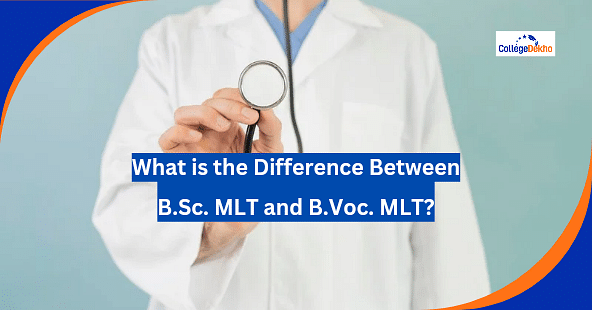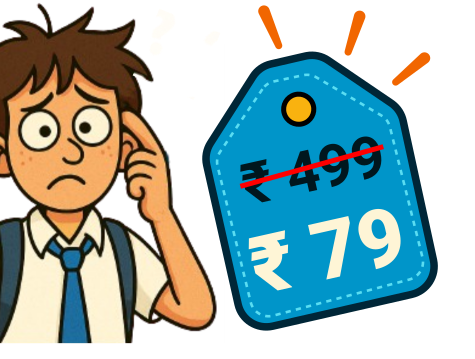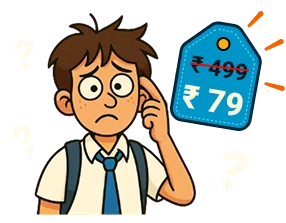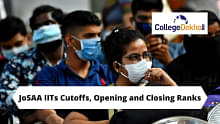
Difference Between B.Sc. MLT and B. Voc. MLT lies in the course curriculum, career opportunities after graduation, and the salary offered. A
BSc MLT
Course is a 3-year undergraduate programme in Paramedical Sciences that trains students for laboratory diagnostic procedures with the use of laboratory equipment and clinical tests. Students pursuing a B.Sc. MLT degree are focused on theoretical knowledge of the clinical process assisting doctors in diagnosing and treating health problems through clinical tests and procedures. On the contrary, a BVoc MLT course is a 3-year paramedical programme that focuses on the practical training and application of laboratory equipment for building and maintaining lab-oriented skills in assisting doctors to diagnose and treat diseases. In B.Voc. MLT degree students are taught to conduct various tests on blood, tissue, and other body fluids to help monitor diseases.
After completing BSc MLT, a student can consider career profiles like Lab Technician, Educational Consultant, Lab Manager, System Analyst, Healthcare Administrator, R&D Lab Assistant etc. Post B.Voc MLT, an individual can opt for job profiles like Medical Laboratory Technologist, Clinical Lab Scientist, Lab Supervisor, Research Assistant, or Quality Control Technician. A detailed analysis of B.Sc. MLT vs B.Voc. MLT has been provided ahead.
BSc MLT vs BVocdi MLT Highlights
For a quick analysis of difference between BSc MLT and BVoc MLT here:
Particulars | B.Sc. MLT | B.Voc. MLT |
|---|---|---|
Full Form | Bachelor of Medical Laboratory Technology | Bachelor of Vocational in Medical Lab Technology |
Course Level | Undergraduate | Undergraduate |
Course Duration | 3 Years | 3 Years |
Course Curriculum | Semester-based | Semester-based |
Average Course Fee | INR 10,000 to INR 2 LPA | INR 20,000 to INR 2 LPA |
Eligibility Criteria | Class 10+2 with Science, with Physics, Chemistry, Biology as core subjects, and 55-60% marks in aggregate | Class 10+2 with Science, with Physics, Chemistry, Biology as core subjects, and 55-60% marks in aggregate |
Admission Process | Entrance Exam/Merit-based | Entrance Exam/Merit-based |
Career Opportunities | Lab Technician, Educational Consultant, Lab Manager, System Analyst, Healthcare Administrator, R&D Lab Assistant | Medical Laboratory Technologist, Clinical Lab Scientist, Lab Supervisor, Research Assistant, Quality Control Technician |
Average Salary | INR 3 LPA to INR 6 LPA | INR 2 LPA to INR 4 LPA |
Also Read: BSc MLT vs BMLT
Differences Between BSc MLT and BVoc MLT
There are many differences between BSc MLT and BVoc MLT courses which students often fail to recognize due to the similarities in the names and course structures of the two. Scroll down and find out detailed differences between BSc MLT and BVoc MLT:
Eligibility Criteria of BSc MLT and BVoc MLT
Interestingly, the eligibility criteria for BSc MLT and BVoc MLT are vastly similar and require students to strictly adhere to the same for admission qualification. To apply for a B.Sc. MLT course or B.Voc. MLT course, students are required to have successfully passed their 10+2 with Science, with Physics, Chemistry, Biology and English as core subjects, and a minimum of 55-60% marks in aggregate. All students must be at least 17 years of age to apply for the course admissions. Some individual colleges also require an entrance exam qualification for eligibility purposes to grant students admission into B.Sc. MLT and B.Voc. MLT courses.
Admission Process of BSc MLT and BVoc MLT
The admission process for B.Voc. MLT is conducted through entrance exams held by the respective colleges, and students who successfully qualify the same are featured on the merit list. Those who appear on the merit list are then shortlisted to participate in the admission counselling process for the final round of admission. The entire process for B.Voc. MLT admission, from the entrance exam registrations to the counselling process, is conducted in online mode. The application form is released online on the official websites of the respective colleges. On the other hand, the B.Sc. MLT admission process is majorly conducted on the merit basis of students’ higher secondary qualifications. While selective colleges still conduct college-specific entrance exams for B.Sc. MLT Course admissions, the primary criteria to qualify for admission remain the same: 10+2 qualification with Science stream, and 55% marks in aggregate in higher secondary.
Course Duration of B.Sc. MLT and B.Voc. MLT
BSc MLT vs BVoc MLT course duration is the same, i.e. 3 years with a detailed course curriculum. Therefore, there are no differences between B.Sc. MLT and B.Voc. MLT in their course duration as such. In both cases, the duration of the course curriculum is divided into six semesters with category-wise subjects and topics for each semester-based learning experience. It is important to note that the average course duration may differ in countries outside India, depending on the course curriculum and type of institution. Also, although the course duration is same but the course curriculum and subjects are very different.
Course Fee of BSc MLT vs BVoc MLT
On average, the course fee of a B.Voc. MLT Course usually ranges between INR 20,000 to INR 2 LPA, whereas that of a B.Sc. MLT is in the range of INR 10,000 to INR 2 LPA. The difference between B.Sc. MLT and B.Voc. MLT Course Fee is largely based on the type of college, location of the college, course structure, and other important details. Another important factor determining the course fee of above-mentioned disciplines is the ranking and prestige of the institution which is often considered while deciding on the course fee.
BSc MLT vs BVoc MLT Scope
The scope for B.Sc. MLT and B.Voc. MLT is widespread across the country as well as abroad. For both B.Sc. MLT and B.Voc. MLT courses, students successfully graduating are eligible to seek opportunities across areas of employment such as hospitals, private healthcare sectors, laboratories, diagnostic centres, blood banks, nursing homes, pharmaceutical industries, etc. While there may be differences between B.Sc. MLT and B.Voc. MLT like work offered to the individuals, the scope for employment opportunities remains the same for both the disciplines across the field of paramedical sciences.
B.Sc. MLT vs B.Voc. MLT Career Opportunities
There are several career opportunities after both B.Sc. MLT and B.Voc. MLT courses at the entry-level and for professionals. There are differences between B.Sc. MLT and B.Voc. MLT in the types of job profiles offered under each of the disciplines, however, both of them attract similar opportunities in terms of career growth and nature of work. Some of the common government job profiles offered to B.Sc. MLT graduates are Lab Technician, Educational Consultant, Lab Manager, System Analyst, Healthcare Administrators, R&D Lab Assistants, etc. On the other hand, some of the common government job opportunities offered to B.Voc. MLT graduates are Medical Laboratory Technologist, Clinical Lab Scientist, Lab Supervisor, Research Assistant, Quality Control Technician, etc.
B.Sc. MLT vs B.Voc. MLT Salary Insights
There are significant differences between B.Sc. MLT and B.Voc. MLT when it comes to the salary insights for career options under the two. The average salary scale offered to a B.Sc. MLT graduate are around INR 3 LPA to INR 6 LPA, whereas the average salary scale offered to a B.Voc. MLT graduate is around INR 2 LPA to INR 4 LPA. The highest salary of B.Sc. MLT graduate may range upto INR 10 LPA while that of a B.Voc. MLT graduate may range upto INR 8 LPA. The salary range offered for each of these courses are determined based on the type of recruitment, government or private sectors, level of experience, and location of employment.
Study MLT at Virohan
Virohan Institute of Health & Management Sciences is a well-known educational institution offering various paramedical course admissions in India to eligible students. Those who are interested in seeking MLT admission at
Virohan Institute of Health & Management Sciences
need to be familiar with institute’s holistic learning approach and modern teaching methods, along with a top-notch faculty which make it a standout among the rest. The average course fee for MLT admission at Virohan Institute of Health & Management Sciences lies between the range of INR 10,000 to INR 2 LPA. The course duration is of 3 years/ Some other popular courses offered at the prestigious Virohan Institute are Radiology Technician, Medical Lab Technician, Operation Theatre Technician, Hospital Administration etc.
Also Read:
Career Options After BSc in Medical Laboratory Technology
To conclude, there are notable differences between B.Sc. MLT and B.Voc. MLT which differentiate the career opportunities offered to students graduating either of the courses. While the essence of the course curriculum majorly remains the same, the differences between BSc MLT and BVoc MLT majorly lies in its nature of career opportunities and its contribution to the medical assistance for diagnosis and treatment of diseases for patient care.
Are you feeling lost and unsure about what career path to take after completing 12th standard?
Say goodbye to confusion and hello to a bright future!

Was this article helpful?




















Similar Articles
DMLT Course Admission 2025 in India: Dates, Application, Selection, Colleges
Tamil Nadu Paramedical Admission 2025: Dates, Merit List, Seat Allotment, Admission Process
Punjab Para Medical Entrance Test (PPMET) 2025: Check Eligibility, Application Form, Admit Card, Exam Pattern & Selection Process
How to Choose the Right Paramedical Specialisation After Class 12th?
Best Career Options After BOT (Bachelor in Occupational Therapy): Check Scope, Job Profiles, Salary, Courses After BOT
Top Veterinary Colleges in India through NEET 2025: Eligibility, Fees, Cutoff